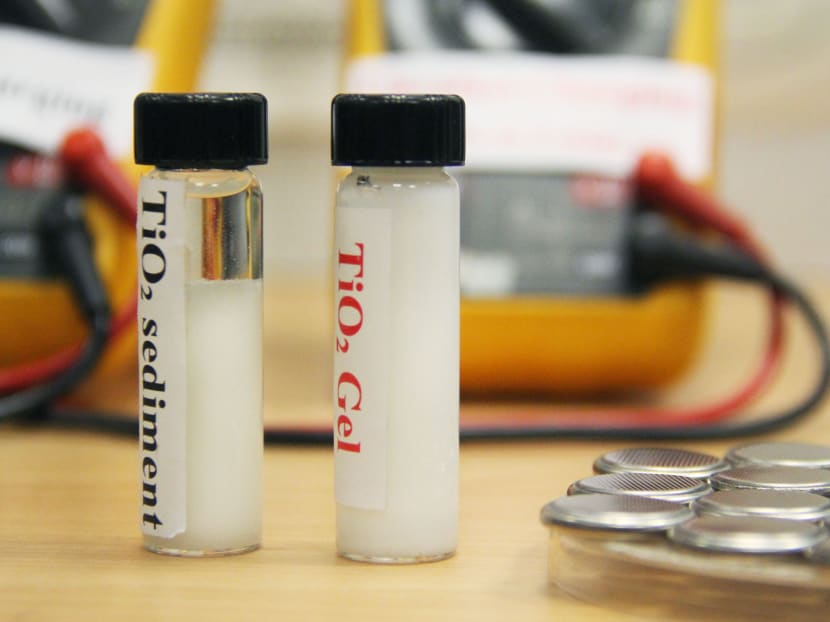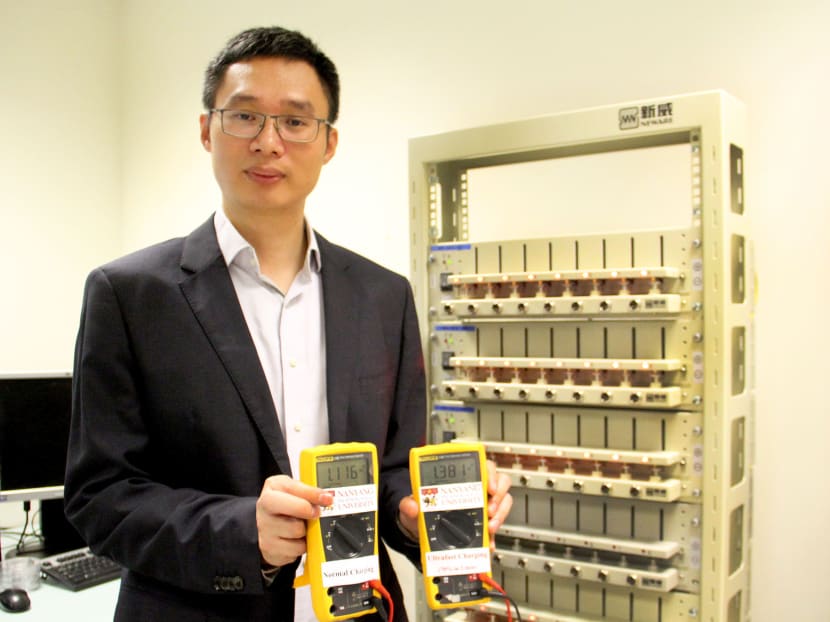NTU scientists develop fast-charging batteries
SINGAPORE — In a development that can have a wide-ranging impact on industries — especially for electric cars — scientists at Nanyang Technological University (NTU) have developed ultra-fast charging batteries that can be recharged up to 70 per cent in two minutes.


SINGAPORE — In a development that can have a wide-ranging impact on industries — especially for electric cars — scientists at Nanyang Technological University (NTU) have developed ultra-fast charging batteries that can be recharged up to 70 per cent in two minutes.
With the batteries, which have a lifespan of more than 20 years, electric cars will be able to increase their range dramatically with only five minutes of charging, which is on par with the time needed to pump petrol for current cars, said one of the scientists, Associate Professor Chen Xiaodong from NTU’s School of Materials Science and Engineering.
“Equally important is that we can now drastically cut down the toxic waste generated by disposed batteries, since our batteries last 10 times longer than the current generation of lithium-ion batteries,” he added.
Currently, rechargeable lithium-ion batteries — commonly used in mobile phones, tablets and electric vehicles — usually last about 500 charge cycles. This is equivalent to two to three years of typical use, with each cycle taking about two hours for the battery to be fully charged.
The 10,000-cycle life of the new battery also means that drivers of electric vehicles would save on the cost of battery replacements, which could cost more than US$5,000 (S$6,350) each.
In the new battery, the traditional graphite used for the anode (negative pole) in lithium-ion batteries is replaced with a new gel material made from titanium dioxide — commonly used as a food additive or in sunscreen lotions to absorb harmful ultraviolet rays.
The research project by Assoc Prof Chen and his team — which took three years to complete — was published in the latest issue of Advanced Materials, a leading international scientific journal in materials science. The team will be applying for a proof-of-concept grant to build a large-scale battery prototype, NTU said in a press release yesterday.
The NTU team has licensed the technology for the fast-charging batteries to a company for eventual production. Assoc Prof Chen said he expected the batteries to hit the market within two years.






